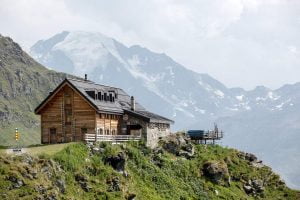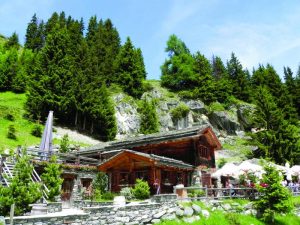
We wanted to share some of the photos and messages from this year’s participants:
“Thanks for an amazing 3 weeks in the best chalet ever! Hat” “Dear Mikey, a huge thank you for these beautiful 3 weeks! Always smiling, supportive and helpful for us! Best counsellor! Love, Cici” “Thank you for this wonderful camp! Maybe see you next year. Felix” “I love being here, it’s the best time of the year. Thanks for everything (even killing the spider in the bathroom). Guilue” “Thank you Andras for your patience!” “Thanks a lot of these 3 weeks, it was great! Keep doing such a good job Flore”
“Thank you for your love, care and laughter. Wonderful heart warming and spiffing are just some words to describe you! You have a place in my heart! Amir”
Thank you to everyone who participated in the Verbier Festival Junior Orchestra with Altitude this year. We all had an amazing time, and all of our staff send their best wishes to all of you! We wish you a successful year, and hope to see lots of you back next Summer!
Flore”
“Thank you for your love, care and laughter. Wonderful heart warming and spiffing are just some words to describe you! You have a place in my heart! Amir”
Thank you to everyone who participated in the Verbier Festival Junior Orchestra with Altitude this year. We all had an amazing time, and all of our staff send their best wishes to all of you! We wish you a successful year, and hope to see lots of you back next Summer!

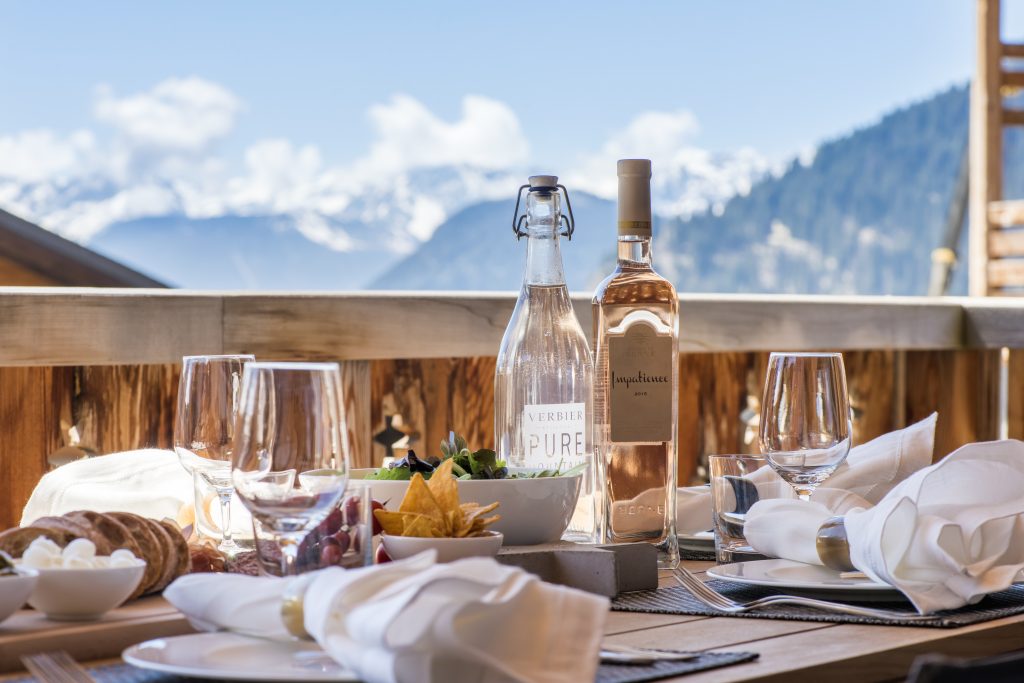
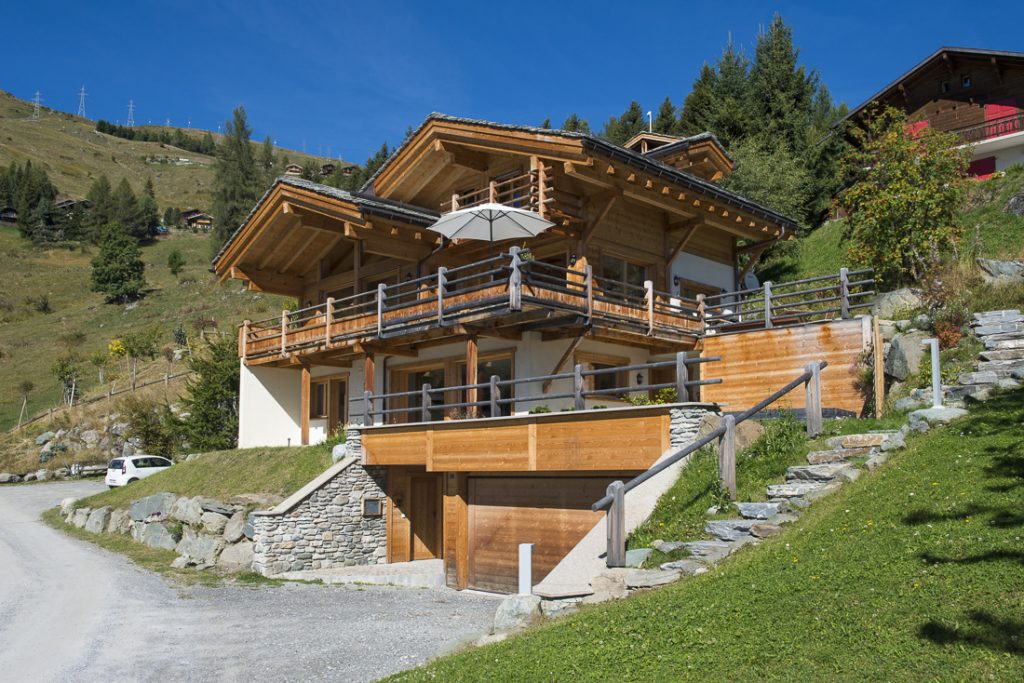
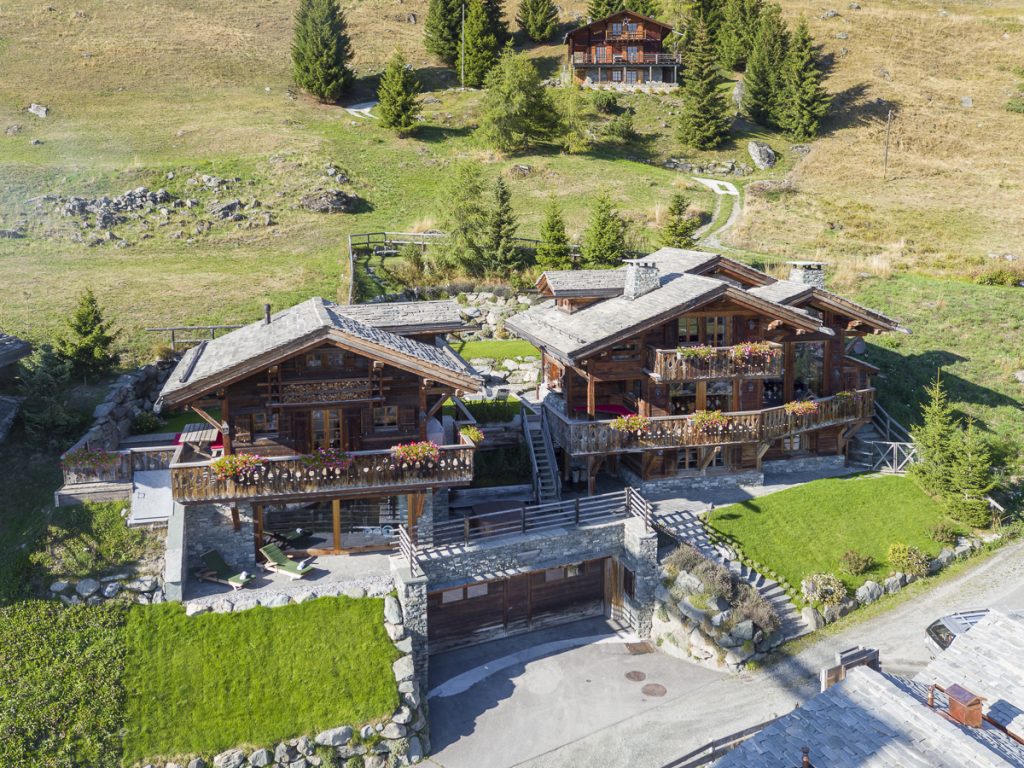 To find out more about the accommodation we offer check out our
To find out more about the accommodation we offer check out our 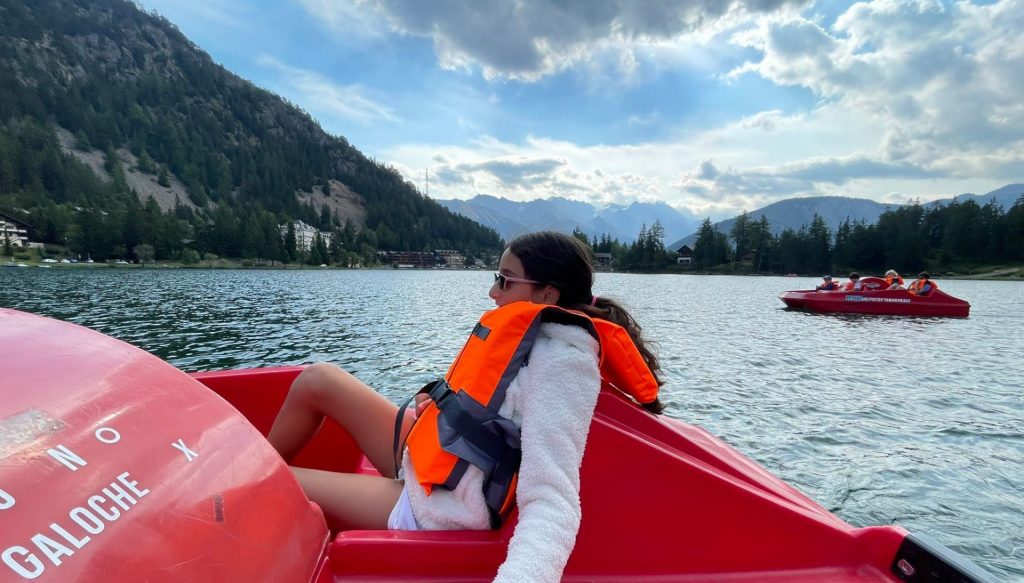
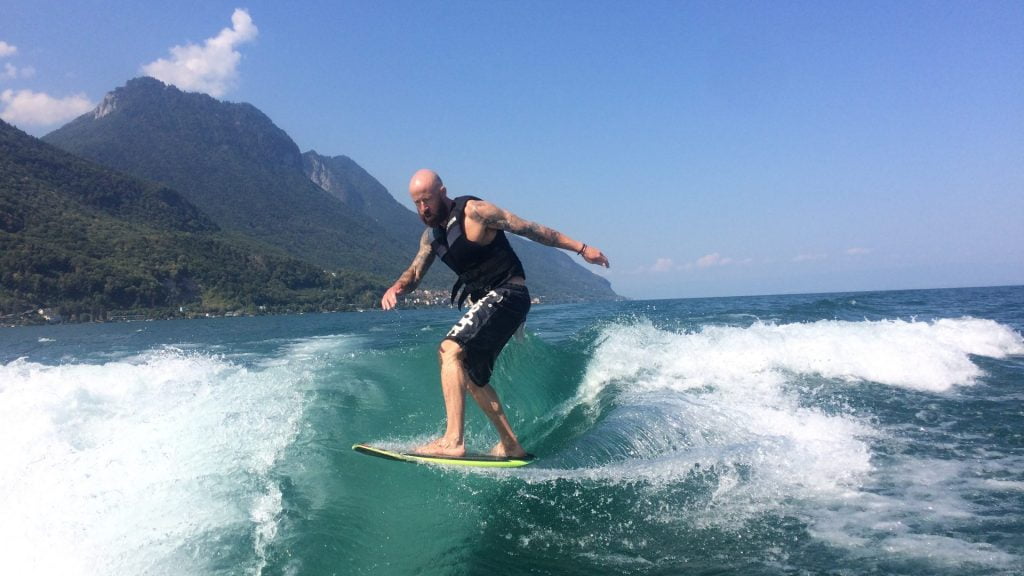
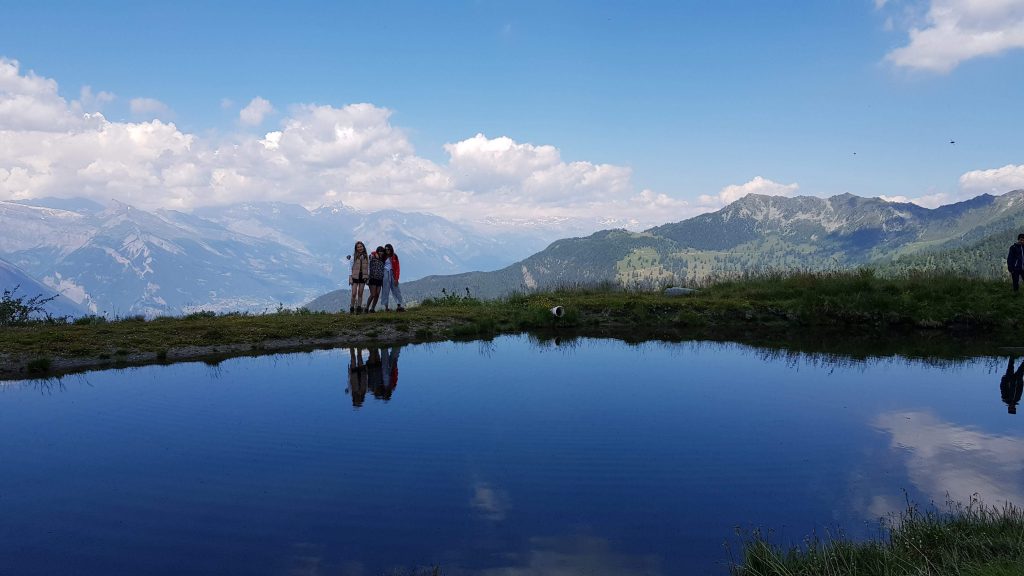 The Swiss Alps in the summertime is a dream destination for a family mountain bike holidays, no matter what your level of experience. For those looking for the perfect base for a family bike holiday, whether you’re interested in road biking, e-biking or mountain biking, Verbier is a great option for the whole family.
The Swiss Alps in the summertime is a dream destination for a family mountain bike holidays, no matter what your level of experience. For those looking for the perfect base for a family bike holiday, whether you’re interested in road biking, e-biking or mountain biking, Verbier is a great option for the whole family.
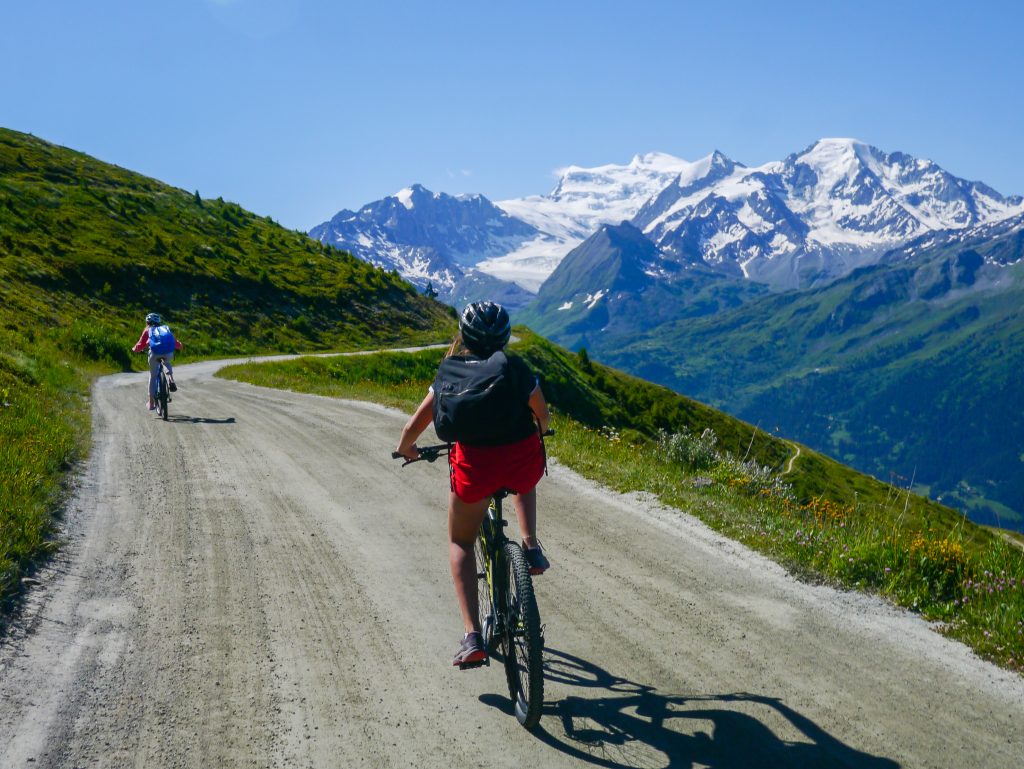
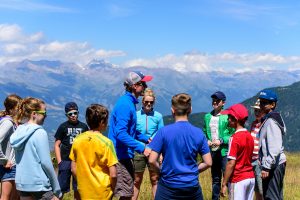
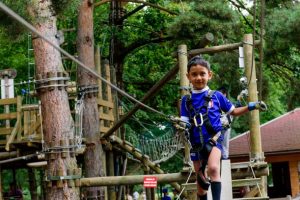
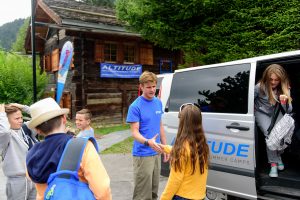
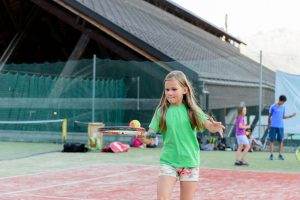
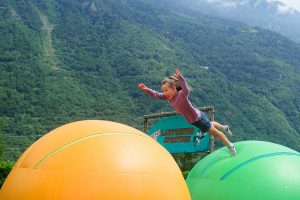
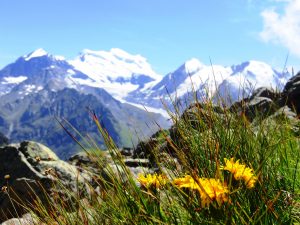
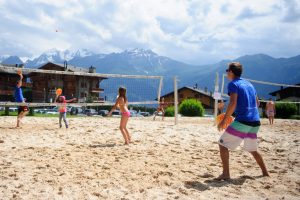
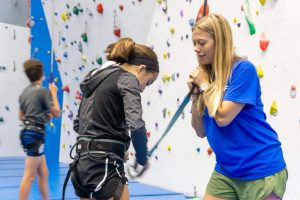
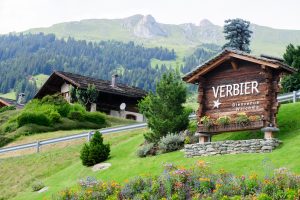
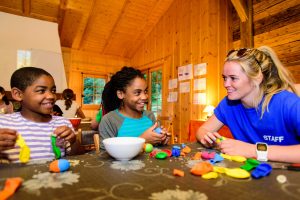
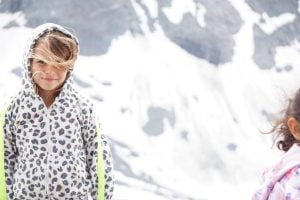
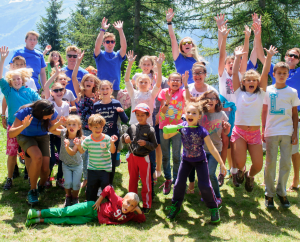
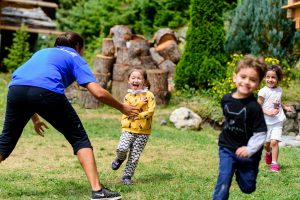 What to look for:
What to look for: You will need: a cucumber, fillings of choice: eg. slices of cheese, soft cheese, ham, slices of tomatoes
You will need: a cucumber, fillings of choice: eg. slices of cheese, soft cheese, ham, slices of tomatoes
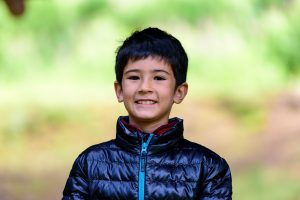 Here are a few questions you can ask your camper to get the conversation flowing and learn a bit more about their camp experiences.
Here are a few questions you can ask your camper to get the conversation flowing and learn a bit more about their camp experiences.
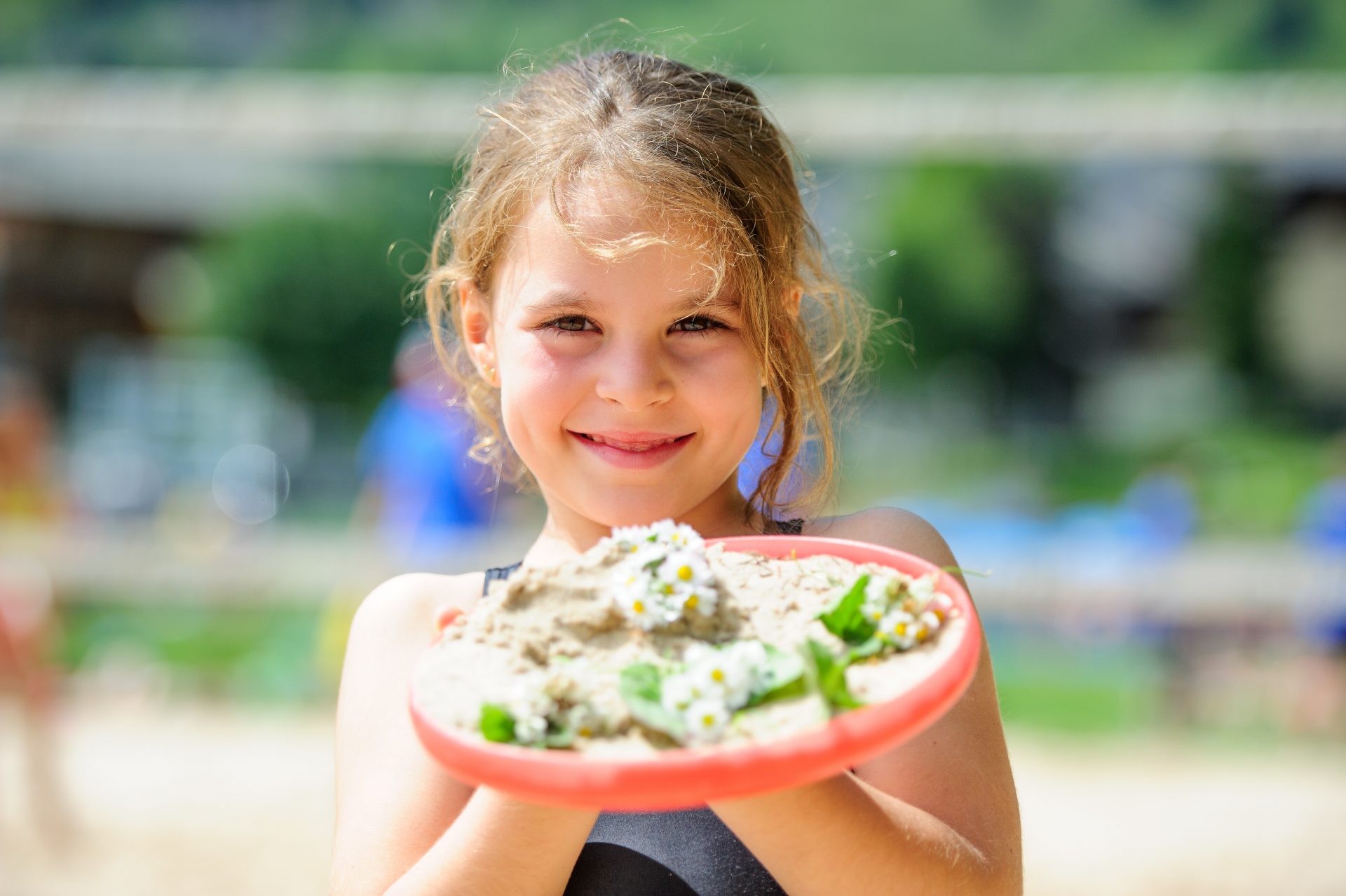
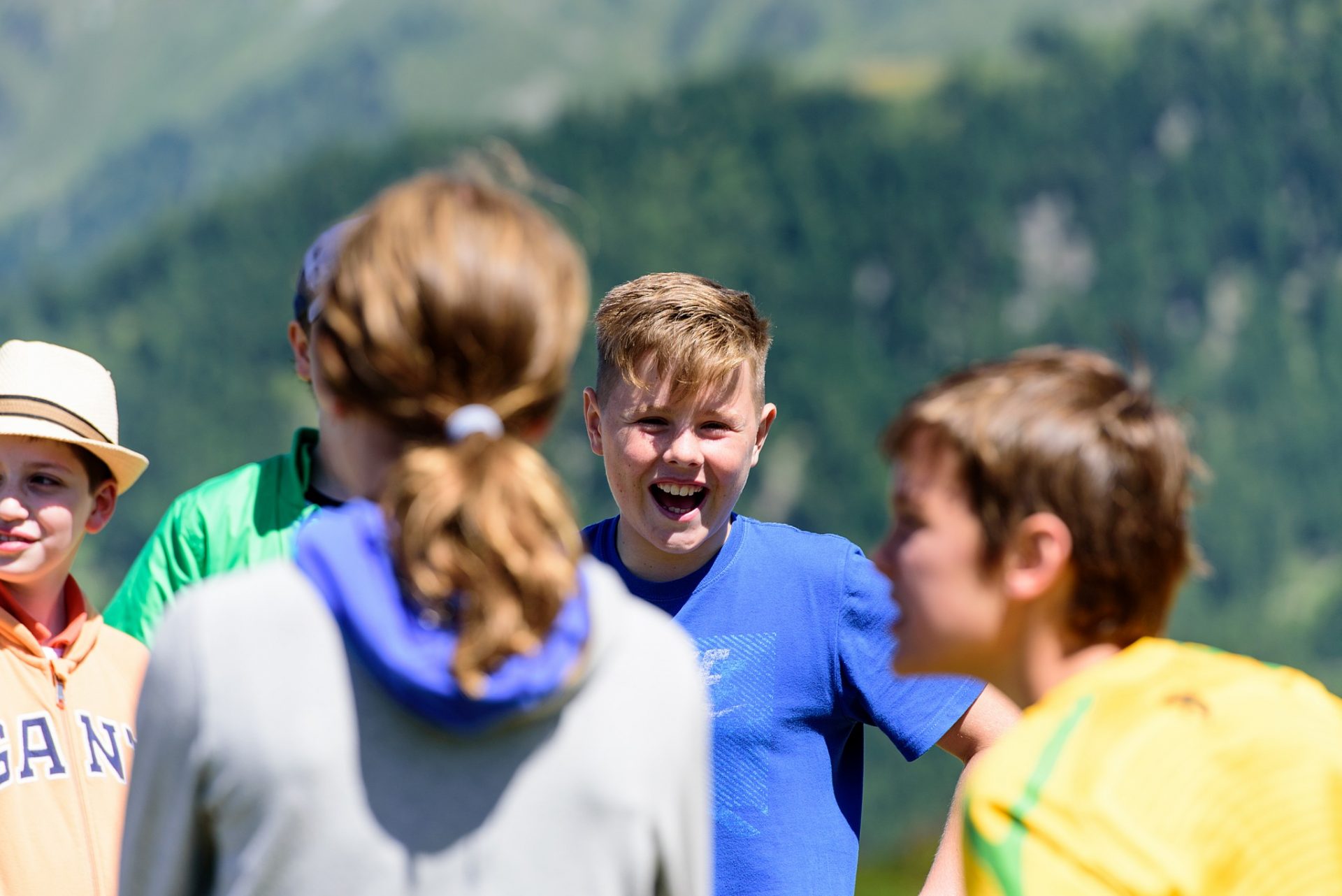
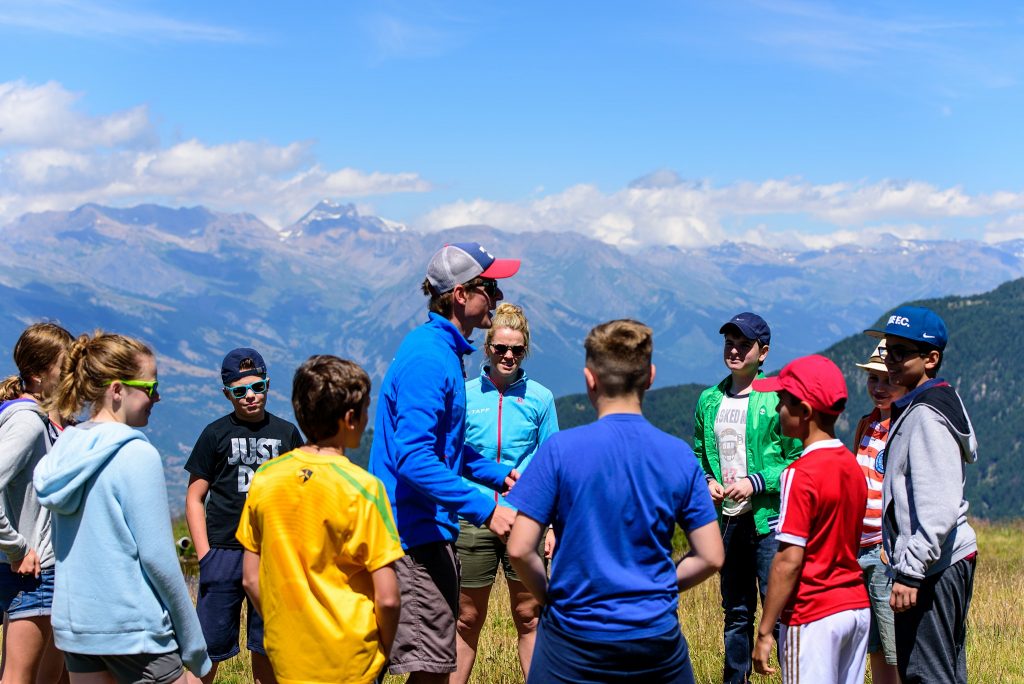
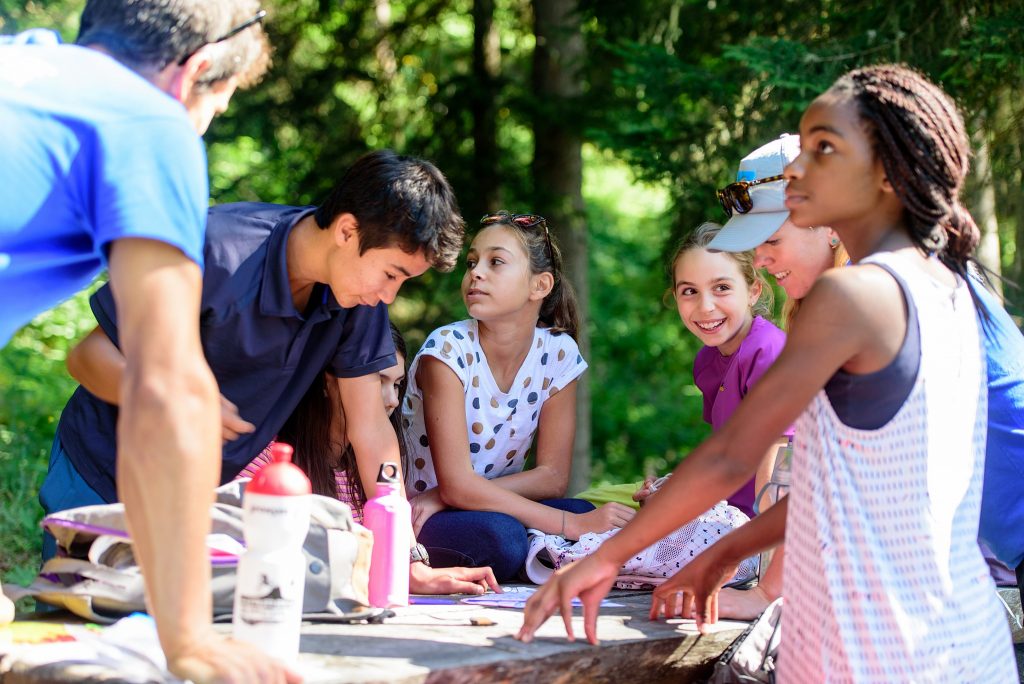
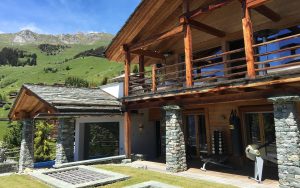
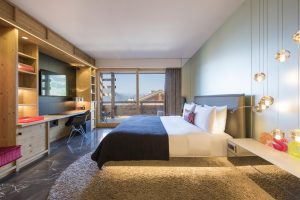
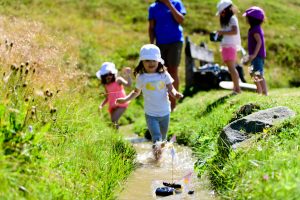 Hike with friends!
This isn’t always achievable, but especially for a longer hike, kids are much more motivated when hiking with friends! They will also entertain each other by making up games and keep each other moving, making for a more relaxing hike for the grown-ups!
Sing! Songs can be a great way to distract children and cheer them up if they’ve suddenly discovered tired legs or uncomfortable shoes!
Walk family-friendly, themed trails. There are a great selection of trails in places that are designed for families and children, with interesting things to see and do along the way. In Verbier, a great option is the ‘Sentier des Sculptures’, which is part of the bisse walk and offers interesting mountain and animal-themed sculptures with information on each section to read to kids. Walking along the bisse can also be lots of fun, as this is a very gentle flowing man-made stream with water that can be paddled in or used for ‘races’ of sticks or other floating natural objects you may find! Check the details of each trail before you start and make sure that it is marked as easy or family-friendly, isn’t too long or steep to avoid carrying tired children.
Have a fun destination or activity planned
Planning your walk with something to look forward to, perhaps a restaurant for lunch or even just a juice is a great idea, and kids will stay motivated to reach their destination. Other things can be a look-out point, or a lake or waterfall, for example. Incorporating rides of the lifts is also great fun for children, for younger ones that you are worried about on the chairlift there are bubbles, or for slightly bigger kids chairlifts are a fun way to see the views too, and get up high without too much uphill walking!
Pack snacks!
A water and snack break is very important to keep kids fuelled up! There are lots of benches along trails that provide the perfect spot for this.
We hope you have a great time hiking with your little ones!
Hike with friends!
This isn’t always achievable, but especially for a longer hike, kids are much more motivated when hiking with friends! They will also entertain each other by making up games and keep each other moving, making for a more relaxing hike for the grown-ups!
Sing! Songs can be a great way to distract children and cheer them up if they’ve suddenly discovered tired legs or uncomfortable shoes!
Walk family-friendly, themed trails. There are a great selection of trails in places that are designed for families and children, with interesting things to see and do along the way. In Verbier, a great option is the ‘Sentier des Sculptures’, which is part of the bisse walk and offers interesting mountain and animal-themed sculptures with information on each section to read to kids. Walking along the bisse can also be lots of fun, as this is a very gentle flowing man-made stream with water that can be paddled in or used for ‘races’ of sticks or other floating natural objects you may find! Check the details of each trail before you start and make sure that it is marked as easy or family-friendly, isn’t too long or steep to avoid carrying tired children.
Have a fun destination or activity planned
Planning your walk with something to look forward to, perhaps a restaurant for lunch or even just a juice is a great idea, and kids will stay motivated to reach their destination. Other things can be a look-out point, or a lake or waterfall, for example. Incorporating rides of the lifts is also great fun for children, for younger ones that you are worried about on the chairlift there are bubbles, or for slightly bigger kids chairlifts are a fun way to see the views too, and get up high without too much uphill walking!
Pack snacks!
A water and snack break is very important to keep kids fuelled up! There are lots of benches along trails that provide the perfect spot for this.
We hope you have a great time hiking with your little ones!
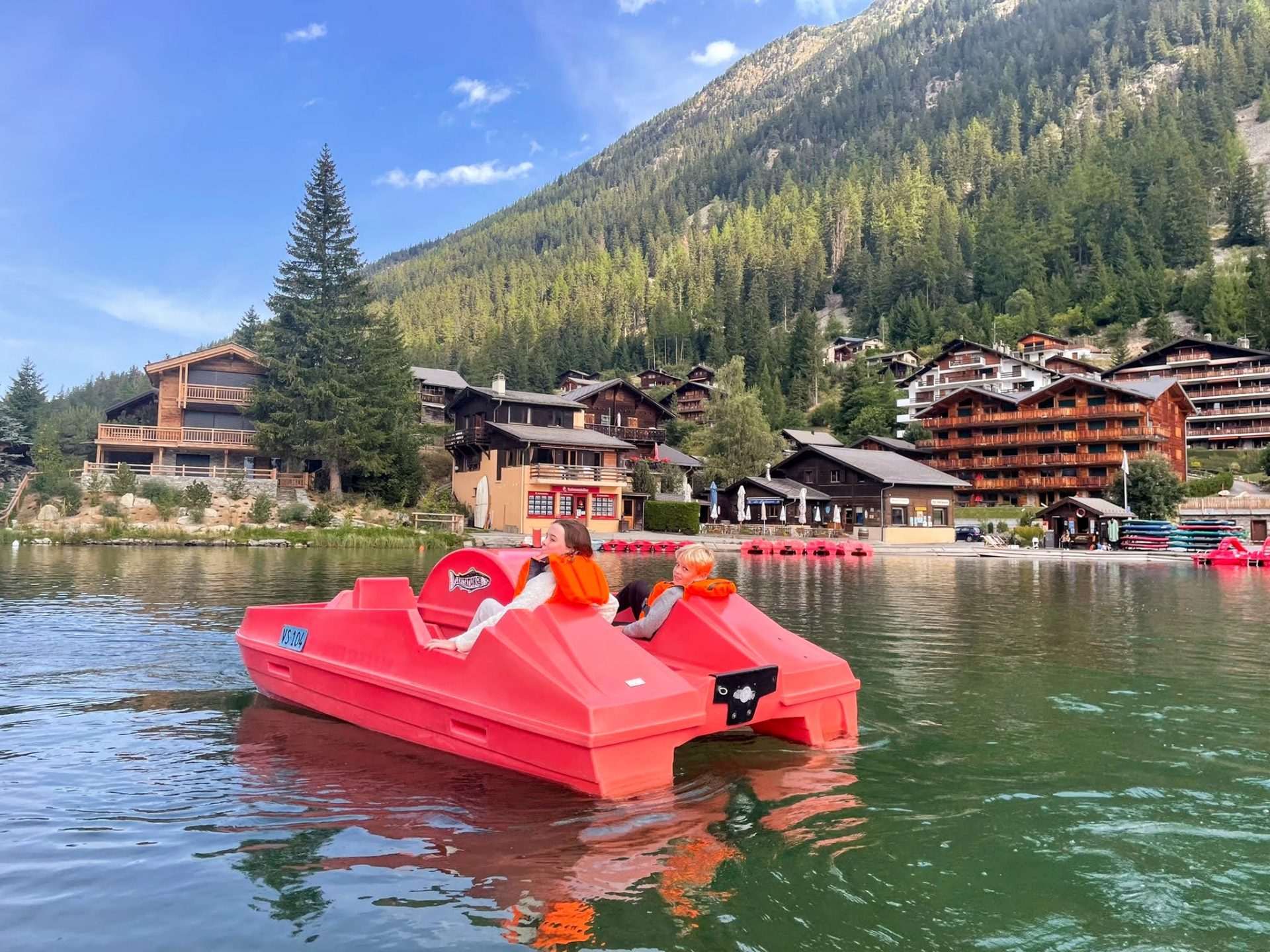 Hiking
There are some beautiful hikes in the area. One of our favourites to enjoy some of the spectacular views of the valley is the bisse walk, which can then be turned into a much bigger walk up the river if you wish. Park at the lift station and follow the road that runs behind this for a short distance, and you will see a sign-posted footpath running slightly downhill which takes you along the bisse, and then joins up with the fast flowing river.
Botanical Garden
For those fancying a stroll, there is an alpine botanic garden located in Champex-Lac. Just drive past the main section of the lake and town. The easiest way to access this is to park at the lift station again up out of town and on the opposite side of the road you will see signs to the botanic garden going back in the direction you have just come. About 5 minutes walk will take you; there is an entry fee.
Lunch Spots
There are some lovely restaurants in the centre of the village offering lunch, some with a view of the lake and others just a few moments stroll away.
Hiking
There are some beautiful hikes in the area. One of our favourites to enjoy some of the spectacular views of the valley is the bisse walk, which can then be turned into a much bigger walk up the river if you wish. Park at the lift station and follow the road that runs behind this for a short distance, and you will see a sign-posted footpath running slightly downhill which takes you along the bisse, and then joins up with the fast flowing river.
Botanical Garden
For those fancying a stroll, there is an alpine botanic garden located in Champex-Lac. Just drive past the main section of the lake and town. The easiest way to access this is to park at the lift station again up out of town and on the opposite side of the road you will see signs to the botanic garden going back in the direction you have just come. About 5 minutes walk will take you; there is an entry fee.
Lunch Spots
There are some lovely restaurants in the centre of the village offering lunch, some with a view of the lake and others just a few moments stroll away.
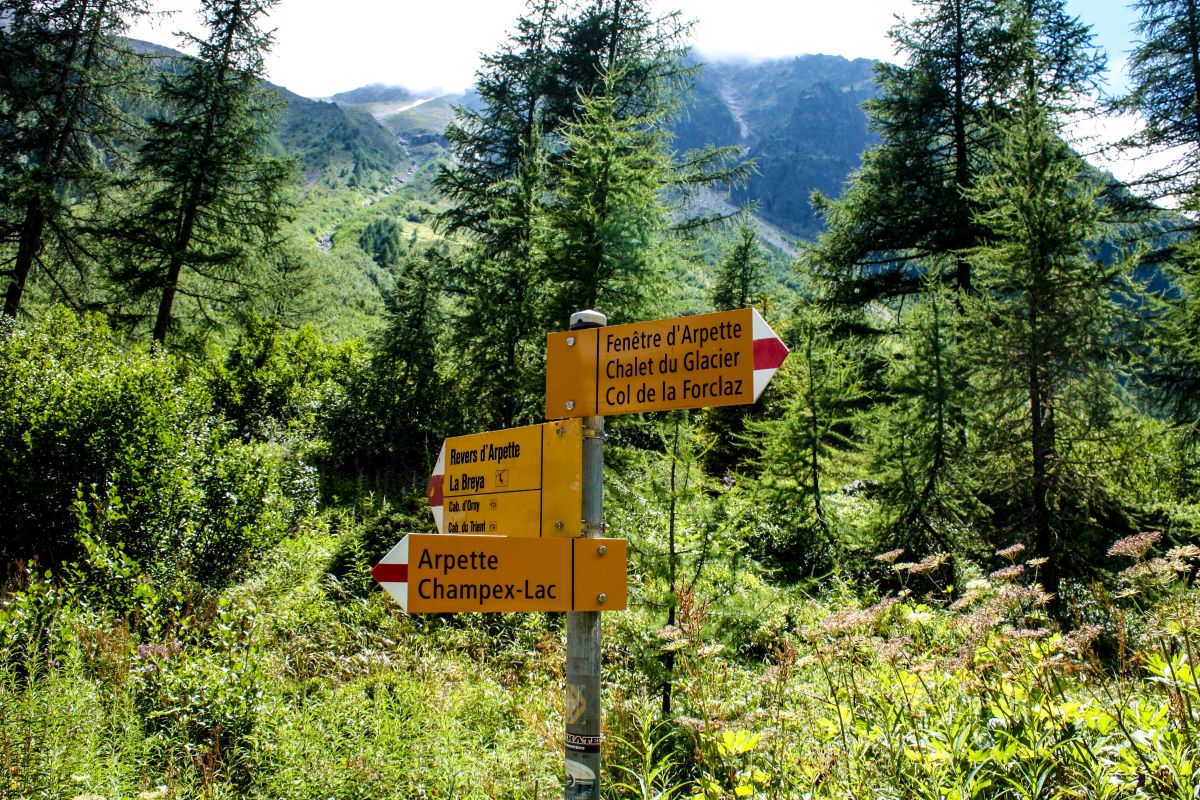 Outdoor Pool
If you fancy a swim and don’t want to brave the waters of the lac then there is an outdoor pool just off the road before reaching the village and lake. This can be a great way to cool off after a hike with the kids, or just to enjoy after a stroll around the lake and town.
Climbing
For climbers, there’s a lovely little spot to check out very close to the town. Before the outdoor pool there is a lay by where you can park, and a hiking trail which actually forms part of the famous ‘Haute Route’ from Chamonix to Zermatt. After a 10 minute walk down the trail there are bolted routes on an outcrop of rock put together by the Guides de Verbier; however please note that you will need to be an experienced climber with all your own equipment.
Knowing how to build a campfire can make a big difference to a camping experience! Some of the most treasured moments of camp can be sitting round the campfire you have just made with your friends, toasting the perfect marshmallow, or sat at an evening campfire with the whole camp telling stories and celebrating achievements from the week before.
Building campfires is one of our campers favourite activities, not only is it a great outdoor skill to learn but it also comes with a whole host of other learning outcomes; as well as a sense of achievement and accomplishment.
A safe place for building your fire
The first step is ensuring your build your fire in a safe place, as well as a place that will aid you in lighting the fire as much as possible. The risk of wildfires in the summer in many forested or grassy areas is high. Make sure you clear an area; ideally there will be bare soil in the area, and you can create a safe boundary for your fire with small rocks to keep it contained, as well as being sheltered from the wind. Make sure there is nowhere the fire can spread to once lit, for example dry grass can easily catch fire. Also ensure there is no fire ban in your area before you decide to light a fire.
Selecting the right fuel for your fire
First select tinder; the smallest and most flammable fuel to get your fire started, followed by kindling and then larger pieces of wood for fuel.
Tinder needs to be very thin shredded material, such as dry ‘old mans beard’, dry pine needles, dried grass, or some types of dried bark. It is hardest to find when the forest floor is damp but this is also when it is most important. Alternatively a supply of matches can act as tinder, or take some with you on damp days. You can create your own by shaving the inside of a log if you are struggling to find dry tinder.
Kindling is the next step up from tinder, and the heat from the tinder will get the kindling burning. This is splinters of wood, small sticks. Remember only use fallen wood from the forest floor rather than breaking from living shrubs or trees; the dry dead wood will burn more easily, as well as protecting the environment. All wood should ‘snap’; if it bends it is too moist to burn.
Fuelwood for a campfire is the final step up; start with smaller pieces of wood, twigs and once your fire is going with a bit more heat you’ll be able to use larger pieces of wood. You’re not looking to burn anything thicker than the width of your wrist, as a rule.
Outdoor Pool
If you fancy a swim and don’t want to brave the waters of the lac then there is an outdoor pool just off the road before reaching the village and lake. This can be a great way to cool off after a hike with the kids, or just to enjoy after a stroll around the lake and town.
Climbing
For climbers, there’s a lovely little spot to check out very close to the town. Before the outdoor pool there is a lay by where you can park, and a hiking trail which actually forms part of the famous ‘Haute Route’ from Chamonix to Zermatt. After a 10 minute walk down the trail there are bolted routes on an outcrop of rock put together by the Guides de Verbier; however please note that you will need to be an experienced climber with all your own equipment.
Knowing how to build a campfire can make a big difference to a camping experience! Some of the most treasured moments of camp can be sitting round the campfire you have just made with your friends, toasting the perfect marshmallow, or sat at an evening campfire with the whole camp telling stories and celebrating achievements from the week before.
Building campfires is one of our campers favourite activities, not only is it a great outdoor skill to learn but it also comes with a whole host of other learning outcomes; as well as a sense of achievement and accomplishment.
A safe place for building your fire
The first step is ensuring your build your fire in a safe place, as well as a place that will aid you in lighting the fire as much as possible. The risk of wildfires in the summer in many forested or grassy areas is high. Make sure you clear an area; ideally there will be bare soil in the area, and you can create a safe boundary for your fire with small rocks to keep it contained, as well as being sheltered from the wind. Make sure there is nowhere the fire can spread to once lit, for example dry grass can easily catch fire. Also ensure there is no fire ban in your area before you decide to light a fire.
Selecting the right fuel for your fire
First select tinder; the smallest and most flammable fuel to get your fire started, followed by kindling and then larger pieces of wood for fuel.
Tinder needs to be very thin shredded material, such as dry ‘old mans beard’, dry pine needles, dried grass, or some types of dried bark. It is hardest to find when the forest floor is damp but this is also when it is most important. Alternatively a supply of matches can act as tinder, or take some with you on damp days. You can create your own by shaving the inside of a log if you are struggling to find dry tinder.
Kindling is the next step up from tinder, and the heat from the tinder will get the kindling burning. This is splinters of wood, small sticks. Remember only use fallen wood from the forest floor rather than breaking from living shrubs or trees; the dry dead wood will burn more easily, as well as protecting the environment. All wood should ‘snap’; if it bends it is too moist to burn.
Fuelwood for a campfire is the final step up; start with smaller pieces of wood, twigs and once your fire is going with a bit more heat you’ll be able to use larger pieces of wood. You’re not looking to burn anything thicker than the width of your wrist, as a rule.
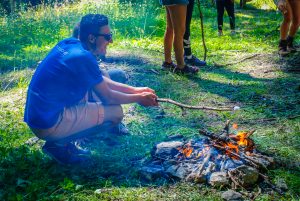 Techniques for building your fire
The two most common types of fire are the ‘tipi’ and ‘log cabin’; both built to allow air to circulate and for the tinder to allow the kindling to catch light.
For the tipi: start by laying your tinder in a small bundle on the ground. Around this use 3 or 4 larger kindling sticks to form the structure and lean smaller kindling around this, leaving an opening for you to access the tinder. You can then lean some smaller fuelwood against this structure.
For a log cabin: start in the same way as a tipi with the tinder and a small tipi around this with kindling. Then lay two pieces of fuel wood on either side, and then another two pieces in the opposite direction to form the 4 walls of your ‘cabin’ Continue to lay slightly smaller pieces to build your cabin taller, and then lay some pieces of kindling over the top.
Lighting your fire
Position yourself between the wind and the fire to act as a wind break. Light underneath the tinder using your match; this can be easier with the tipi than the log cabin as access, so make sure you are able to get to your tinder easily when building. Hold onto your match while you are lighting rather than letting it go.
Extinguishing your fire
Ideally, and depending on how large your fire is, extinguish your fire about 30 minutes before you leave. If you are putting out a burning fire then spread the fire with a stick to put out the flames. After this, pour water on the coals and stir the together when you have wet the entire area. Use your hand above the coals to make sure there are no hot spots; if there are wet with more water. Take the coals/ash and spread in the woods away from the trail, especially for larger fires. Any unused wood can be scattered back in the woods, or left if this is a regular fire spot.
Building a fire is a popular activity on our mountain adventure camps which are available as
Techniques for building your fire
The two most common types of fire are the ‘tipi’ and ‘log cabin’; both built to allow air to circulate and for the tinder to allow the kindling to catch light.
For the tipi: start by laying your tinder in a small bundle on the ground. Around this use 3 or 4 larger kindling sticks to form the structure and lean smaller kindling around this, leaving an opening for you to access the tinder. You can then lean some smaller fuelwood against this structure.
For a log cabin: start in the same way as a tipi with the tinder and a small tipi around this with kindling. Then lay two pieces of fuel wood on either side, and then another two pieces in the opposite direction to form the 4 walls of your ‘cabin’ Continue to lay slightly smaller pieces to build your cabin taller, and then lay some pieces of kindling over the top.
Lighting your fire
Position yourself between the wind and the fire to act as a wind break. Light underneath the tinder using your match; this can be easier with the tipi than the log cabin as access, so make sure you are able to get to your tinder easily when building. Hold onto your match while you are lighting rather than letting it go.
Extinguishing your fire
Ideally, and depending on how large your fire is, extinguish your fire about 30 minutes before you leave. If you are putting out a burning fire then spread the fire with a stick to put out the flames. After this, pour water on the coals and stir the together when you have wet the entire area. Use your hand above the coals to make sure there are no hot spots; if there are wet with more water. Take the coals/ash and spread in the woods away from the trail, especially for larger fires. Any unused wood can be scattered back in the woods, or left if this is a regular fire spot.
Building a fire is a popular activity on our mountain adventure camps which are available as  Get kids involved in growing their own food!
If children have been involved in the planting and growing process, they are much more likely to want to eat their fruits and vegetables! Growing food yourself also means you can guarantee it is organic with no pesticides, and teaches children where different foods come from. Understanding food also helps children make healthier choices as they grow older and are able to choose their own meals at school and beyond.
Involve children in the food preparation process
We lead busy lives and many parents wont be a fan of this suggestion, but involving children in food preparation will mean they are far more likely to eat and enjoy their food as they are proud of what they have made. Letting them help in the supermarket shops and learn to read food labels also increases their awareness.
Get kids involved in growing their own food!
If children have been involved in the planting and growing process, they are much more likely to want to eat their fruits and vegetables! Growing food yourself also means you can guarantee it is organic with no pesticides, and teaches children where different foods come from. Understanding food also helps children make healthier choices as they grow older and are able to choose their own meals at school and beyond.
Involve children in the food preparation process
We lead busy lives and many parents wont be a fan of this suggestion, but involving children in food preparation will mean they are far more likely to eat and enjoy their food as they are proud of what they have made. Letting them help in the supermarket shops and learn to read food labels also increases their awareness.
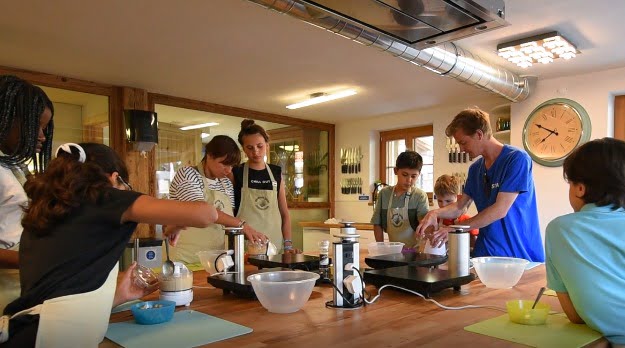 Eating together
Sitting down as a family can be important, even if schedules mean it cant happen every night. You are a role model for your child and eating healthy yourself will encourage them to do so and try more foods too. Importantly children should be at a table without electronic or other devices on, as it has been shown children are more likely to eat more unhealthy food in front of televisions.
Making food from scratch
The benefit of this is that you know exactly what is in your food; no excess sugar or salt can hide away, and chefs like Jamie Oliver are on a mission to prove that making food from scratch is easier than you think. Cooking in large batches when you have time can also make it easy to defrost a home-cooked meal on a busy night.
Eating together
Sitting down as a family can be important, even if schedules mean it cant happen every night. You are a role model for your child and eating healthy yourself will encourage them to do so and try more foods too. Importantly children should be at a table without electronic or other devices on, as it has been shown children are more likely to eat more unhealthy food in front of televisions.
Making food from scratch
The benefit of this is that you know exactly what is in your food; no excess sugar or salt can hide away, and chefs like Jamie Oliver are on a mission to prove that making food from scratch is easier than you think. Cooking in large batches when you have time can also make it easy to defrost a home-cooked meal on a busy night.
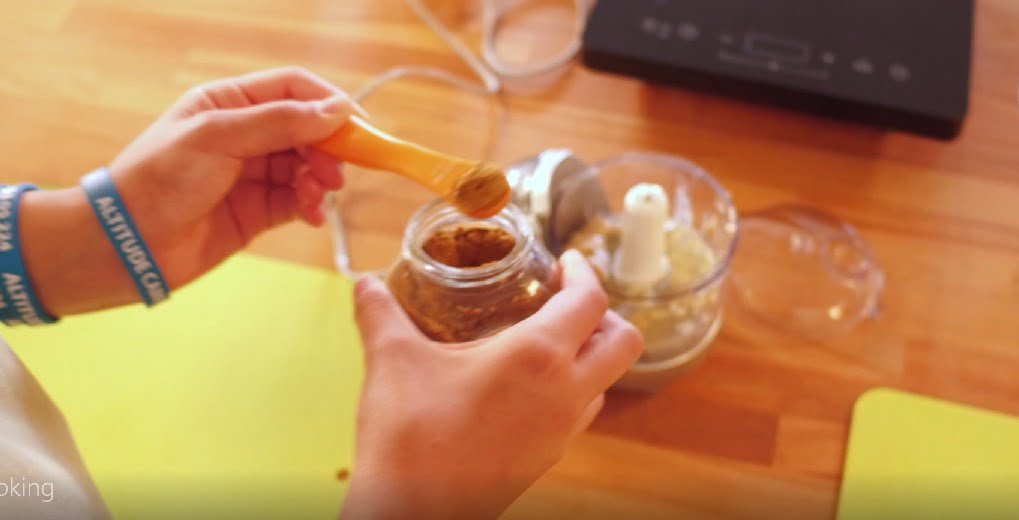 Limit takeaways, fast food and sweets
Advertising and the normalisation of junk food is the target of the food revolution; takeaways near schools mean this is often a choice for older children on their way to or from school. As a special treat this can be fine; not banning these entirely reduces the impulse to binge when able to!
Sugary drinks
For kids this can be a killer, but many sugary drinks can be addictive, especially drinks like coke and kids will actually crave it. Even concentrated fruit juices contain sugar.
Remember portion sizes
Limit a child’s plate, and never insist they clean their plate if they are full. Using food as a reward or bribe is also strongly recommended against.
At camp we have in house chefs making sure all food is prepared each day from fresh ingredients, and using locally sourced produce wherever possible. We also launched our new cookery classes in 2018 which were a great success! The kids loved making their own meals and it was a great way to educate them about where food is sourced, how to safely prepare it, and of course, what makes it healthy!
Want to know about the food we offer at our summer camps? Make sure you check out our
Limit takeaways, fast food and sweets
Advertising and the normalisation of junk food is the target of the food revolution; takeaways near schools mean this is often a choice for older children on their way to or from school. As a special treat this can be fine; not banning these entirely reduces the impulse to binge when able to!
Sugary drinks
For kids this can be a killer, but many sugary drinks can be addictive, especially drinks like coke and kids will actually crave it. Even concentrated fruit juices contain sugar.
Remember portion sizes
Limit a child’s plate, and never insist they clean their plate if they are full. Using food as a reward or bribe is also strongly recommended against.
At camp we have in house chefs making sure all food is prepared each day from fresh ingredients, and using locally sourced produce wherever possible. We also launched our new cookery classes in 2018 which were a great success! The kids loved making their own meals and it was a great way to educate them about where food is sourced, how to safely prepare it, and of course, what makes it healthy!
Want to know about the food we offer at our summer camps? Make sure you check out our 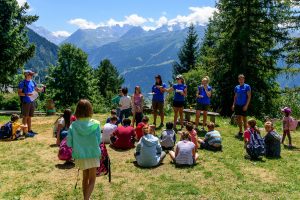 Packing for Camp
This list is an accurate reflection of what the “average” camper needs and uses during a 2 week Altitude Summer Camp; however, we realise that it may not be perfect for all campers. If a child is participating in the mountain adventure camp it may be worth investing in some good hiking shoes. Please remember to apply name tags to clothing.
Packing for Camp
This list is an accurate reflection of what the “average” camper needs and uses during a 2 week Altitude Summer Camp; however, we realise that it may not be perfect for all campers. If a child is participating in the mountain adventure camp it may be worth investing in some good hiking shoes. Please remember to apply name tags to clothing.
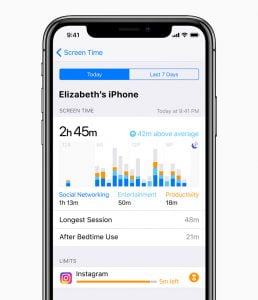
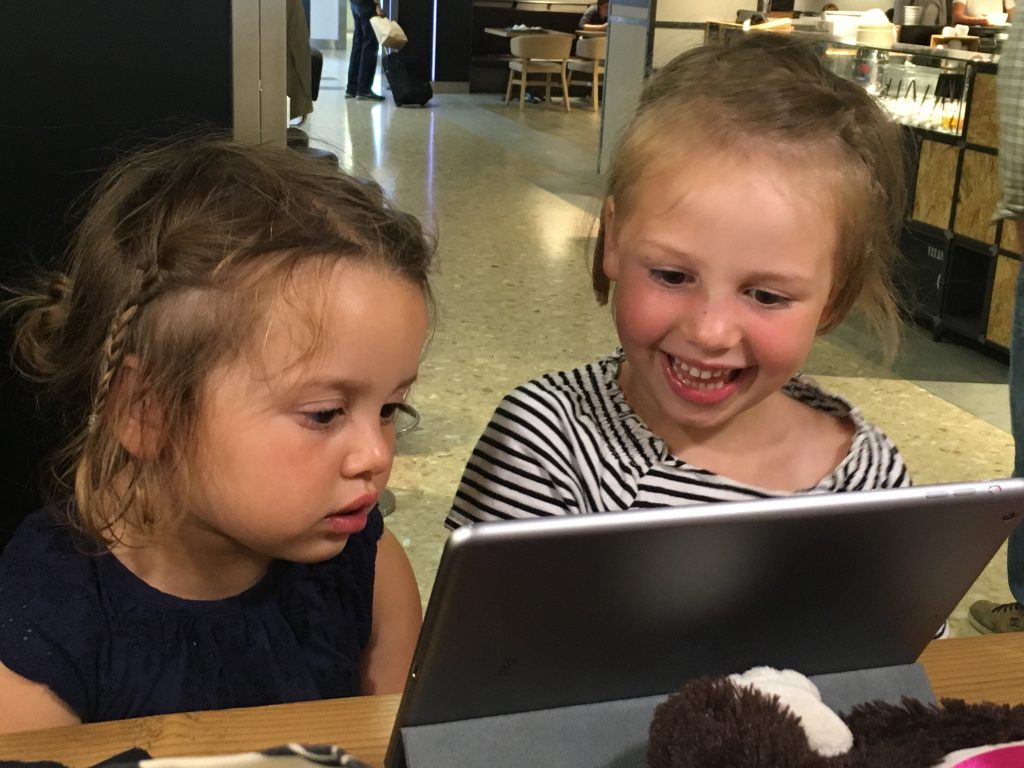 Broadly speaking children under 18 months – 2 years old are recommended to have no screen time at all with the exception of video-chat assisted by an adult. Even when children are not actively using or watching screens, if the television is on in the background, this negatively affects their play and they are likely to be less focused and will play for less time, and also the quality of parent or caregivers interaction with the children is reduced as they themselves are distracted by their phones or television. This can impact and reduce their ability to learn through play and from caregivers.
Essentially, for young children they have nothing to gain and lots to lose from screens. Even educational TV shows aimed at young children have not shown any significant benefits, and a study of children from 8-16 months have shown the more TV a young child watches, the less words they know compared to others in their age group exposed to less TV.
Pre-school age children
For pre-schoolers aged 2-5, current guidelines exist that approximately 1 hour of screen-time should be the limit. However a 2017 study published in the journal Child Development, researchers looked at the impact of screen-time in relation to children’s overall wellbeing. Findings suggested that it was how parents incorporated the media into children’s lives, how they set rules and if they were actively engaged in exploring digital screens with children that had more of an impact than simply the amount of time.
The message from this is therefore that limits are good, but also using screens together with your child is the best way to help them get the maximum benefits of good quality programmes, games and apps, removing the negative impacts of increased screen-time.
Screen-time and Tweens and Teens
Unlike younger children, and especially with the increase in mobile devices, limiting use of screens in older children can be difficult for parents, and monitoring that use, especially in teens, is even more difficult.
Tweens (aged 8-12) are spending an average of 4.5 hours a day, and Teens (13-18) an average of 6.5 hours a day with ‘screen’ media, excluding homework and school-time.
The majority of the time (78% among tweens and 64% among teens) they are using is still ‘passive’ or ‘interactive consumption’ – watching, listening, reading and playing with media content such as TV, videos and gaming.
Broadly speaking children under 18 months – 2 years old are recommended to have no screen time at all with the exception of video-chat assisted by an adult. Even when children are not actively using or watching screens, if the television is on in the background, this negatively affects their play and they are likely to be less focused and will play for less time, and also the quality of parent or caregivers interaction with the children is reduced as they themselves are distracted by their phones or television. This can impact and reduce their ability to learn through play and from caregivers.
Essentially, for young children they have nothing to gain and lots to lose from screens. Even educational TV shows aimed at young children have not shown any significant benefits, and a study of children from 8-16 months have shown the more TV a young child watches, the less words they know compared to others in their age group exposed to less TV.
Pre-school age children
For pre-schoolers aged 2-5, current guidelines exist that approximately 1 hour of screen-time should be the limit. However a 2017 study published in the journal Child Development, researchers looked at the impact of screen-time in relation to children’s overall wellbeing. Findings suggested that it was how parents incorporated the media into children’s lives, how they set rules and if they were actively engaged in exploring digital screens with children that had more of an impact than simply the amount of time.
The message from this is therefore that limits are good, but also using screens together with your child is the best way to help them get the maximum benefits of good quality programmes, games and apps, removing the negative impacts of increased screen-time.
Screen-time and Tweens and Teens
Unlike younger children, and especially with the increase in mobile devices, limiting use of screens in older children can be difficult for parents, and monitoring that use, especially in teens, is even more difficult.
Tweens (aged 8-12) are spending an average of 4.5 hours a day, and Teens (13-18) an average of 6.5 hours a day with ‘screen’ media, excluding homework and school-time.
The majority of the time (78% among tweens and 64% among teens) they are using is still ‘passive’ or ‘interactive consumption’ – watching, listening, reading and playing with media content such as TV, videos and gaming.
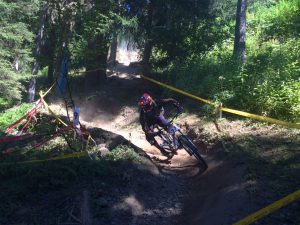
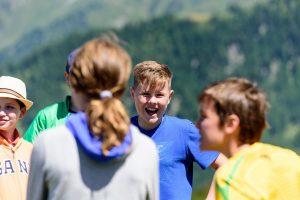

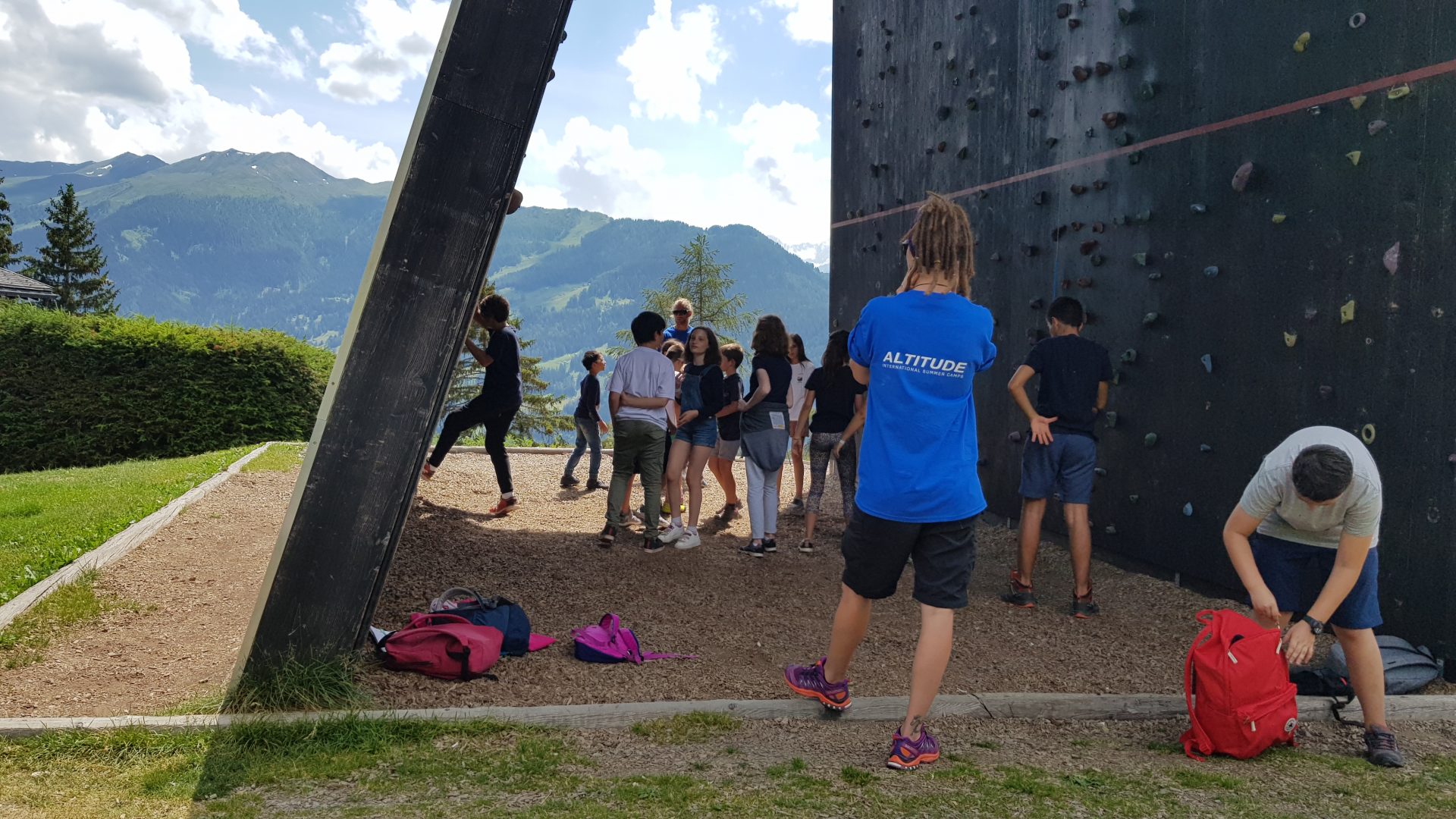
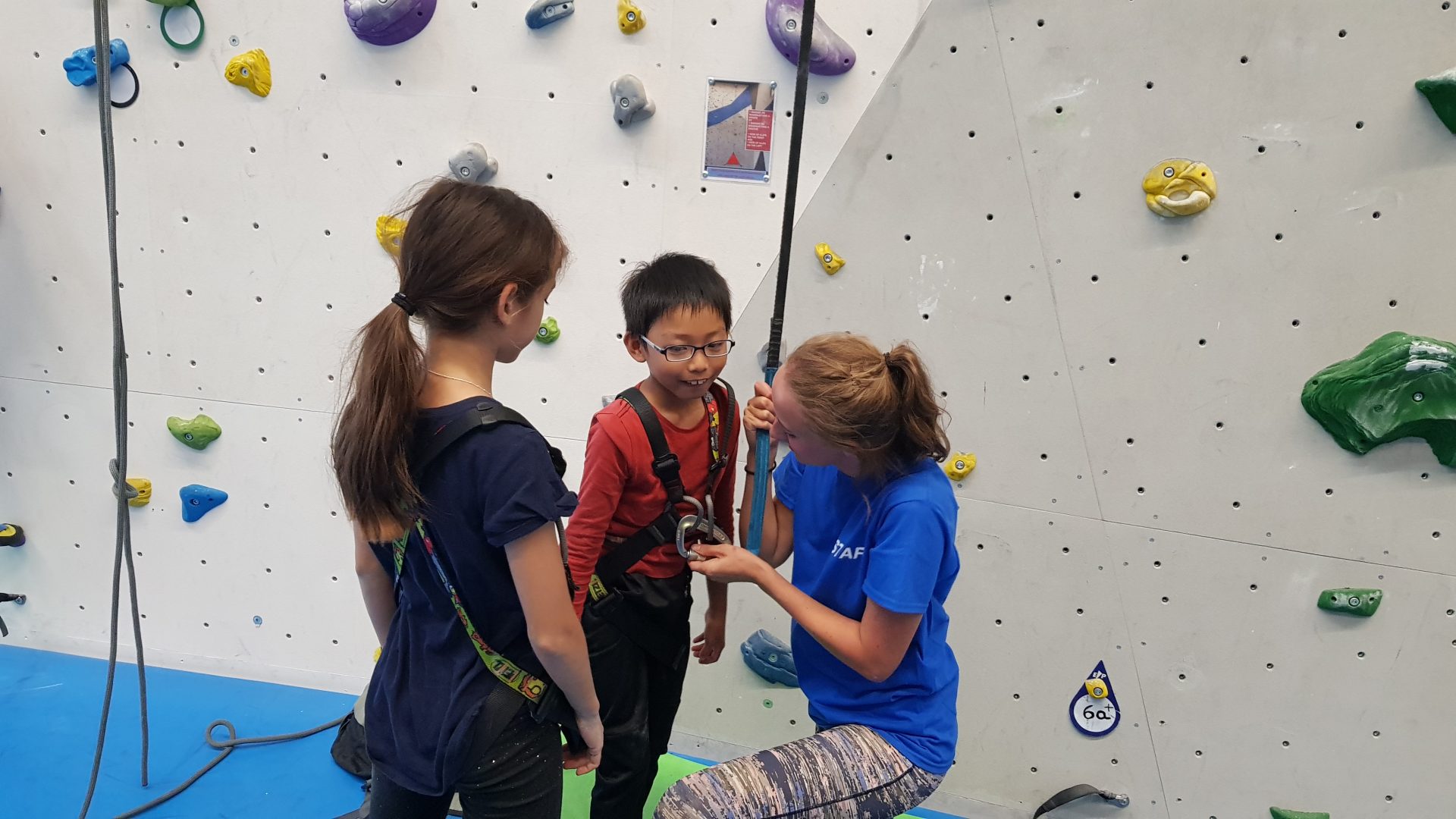 La Barme
Le Barme is an outcrop of rock above the Patier area of Verbier that can be seen from many view points in town but can be surprisingly hard to find! Its possible to walk or drive to it if you keep heading up from the Patier area, and the rock itself is approximately a 10 minute walk along a path from the road. Routes here are mostly in the 5s, 6s and 7s, so not much for those looking for super easy climbs but a great place to progress when you’re ready for outdoor climbing and are fully stocked with all your own equipment.
La Barme
Le Barme is an outcrop of rock above the Patier area of Verbier that can be seen from many view points in town but can be surprisingly hard to find! Its possible to walk or drive to it if you keep heading up from the Patier area, and the rock itself is approximately a 10 minute walk along a path from the road. Routes here are mostly in the 5s, 6s and 7s, so not much for those looking for super easy climbs but a great place to progress when you’re ready for outdoor climbing and are fully stocked with all your own equipment.
